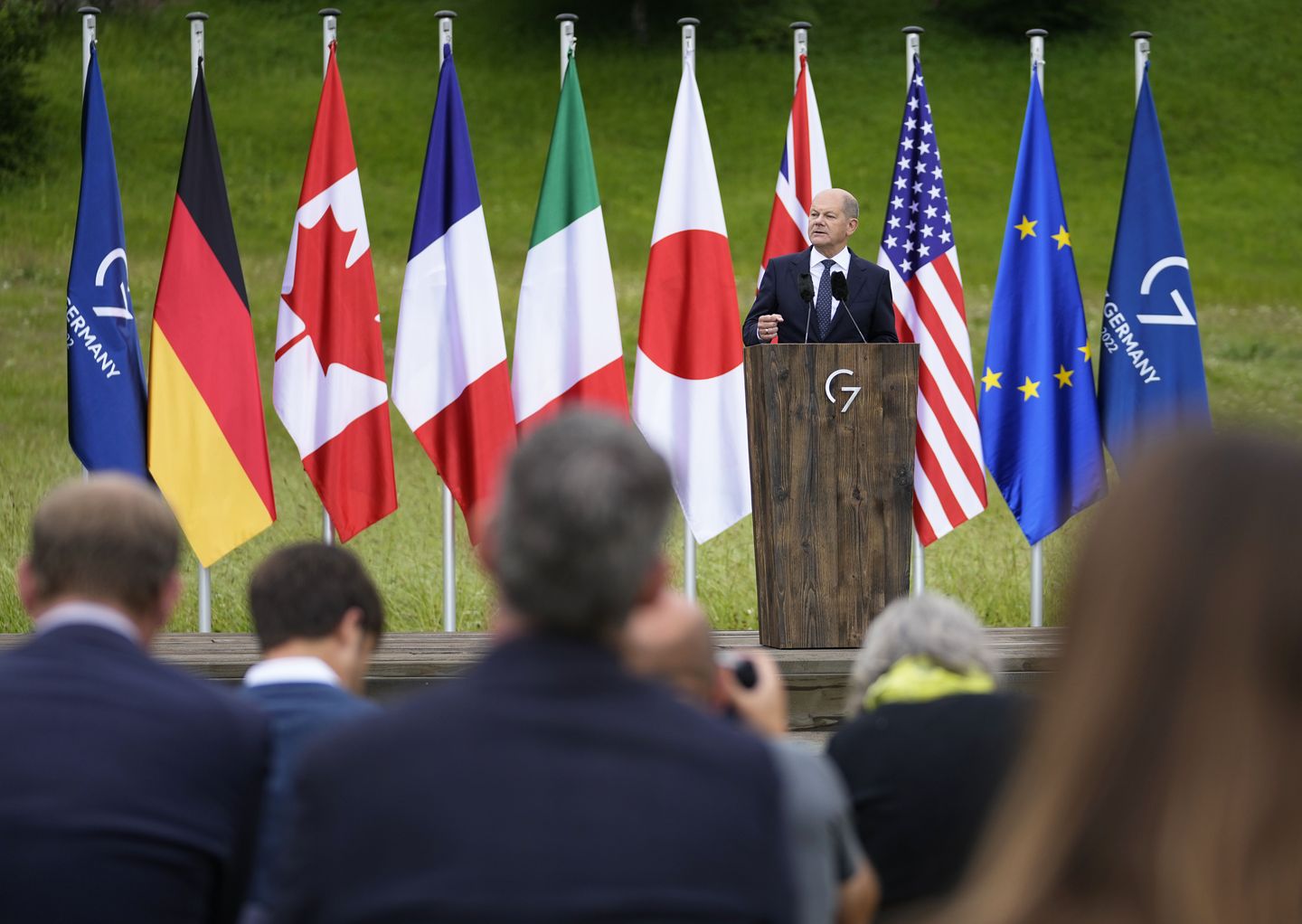

Leaders of some of the world’s largest economies ended their summit Tuesday with an agreement to explore ways to impose a price cap on Russian oil, falling short of the Biden administration’s goal of concluding with a deal in place.
Instead, the heads of the Group of Seven nations reached a consensus to discuss options on limiting the price of Moscow’s oil exports, which Russia is using to finance its war in Ukraine.
Still, the White House hailed the consensus as a victory that will make it harder for Russia to wage war against Ukraine.
“By working together to limit the price of Russian oil, we will further strengthen the existing sanctions imposed by the G-7 and our partners to make sure that [Russian President Vladimir] Putin will not be able to profit from the higher global energy costs that have resulted from his invasion,” Treasury Secretary Janet Yellen said in a statement.
Although President Biden arrived in Germany for the meeting hopeful that a deal could get done, other White House officials publicly acknowledged the difficulty in getting all seven nations on board.
White House National Security Adviser Jake Sullivan told reporters that a price cap agreement would be a “pretty dramatic step forward” and would amount to “one of the more significant outcomes of [the] G7 summit.” He added that a final deal could take weeks or months to reach.
“The single biggest factor here is this is not something that can be pulled off the shelf as a tried and true method. … It is a new kind of concept to deal with a particularly novel challenge, which is how to effectively deal with a country that’s selling millions of barrels of oil a day,” Mr. Sullivan told reporters.
Implementing a plan would be incredibly difficult, especially for the European nations that have deep economic and trade ties with Moscow. Russia still supplies the European continent with the majority of its oil, even as the European Union seeks to wean itself off Russian energy.
G-7 leaders also have much more work to do to figure out the technical aspects of how to deliver a price cap. It would require developing a process to trace Russian oil that flows out of a series of pipelines and combines with millions of barrels of oil exported every day from other oil-producing countries.
France threw a monkey wrench into the agreement on Monday, when President Emmanuel Macron called for a worldwide cap on oil prices, instead of just restricting Russian oil sales. That move sparked a backlash from the U.S. and Germany.
Mr. Macron was said to have backed down later, according to news reports.
Since the war in Ukraine began, the U.S. and Canada have banned Russian oil purchases, and the European Union is set to do so at the end of the year.
Mr. Biden sought to entice other G-7 leaders to go along with the price cap by offering to lift sanctions on insurance for cargo ships that transport Russian oil. Under Mr. Biden’s plan, the sanctions would be lifted only for countries agreeing to buy Russian oil at a maximum price.
A statement from G-7 leaders suggested they were open to Mr. Biden’s plan.
“We will consider a range of approaches, including options for a possible comprehensive prohibition of all services, which enable transportation of Russian seaborne crude oil and petroleum products globally, unless the oil is purchased at or below a price to be agreed in consultations with international partners,” the statement said.
The G-7 nations include the United States, the United Kingdom, Germany, France, Italy, Canada and Japan.
SEE ALSO: U.K. officials say Russian forces ‘hollowed out’ from Ukraine invasion losses
